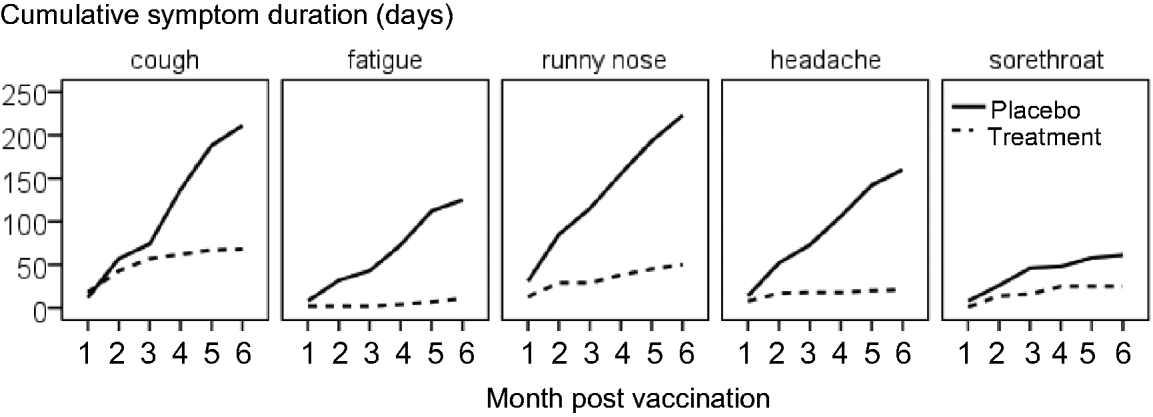The potential health benefits of both pre- and probiotics have expanded in recent years from maintaining bowel regularity and a balance of gut microflora to improving micronutrient status and immune function. There is particular interest in the positive influences of pre- and probiotics in older people, who are subject to alteration in gut microbiota composition and also to immunosenescence (deterioration and dysregulation of the immune system).
The PRIMAGE study is a randomised, double-blind, placebo-controlled, parallel study investigating the influence of Bifidobacterium longum bv. Infantis CCUG 52486 (5×108 CFU/d) combined with gluco-oligosaccharide (8 g/d) on the immune response to influenza vaccination among healthy young (18–35 y, n=58) and older (60–85 y, n=54) volunteers. Volunteers consumed either a placebo (9 g/d maltodextrin) or treatment for a total of 8 weeks, and a trivalent influenza vaccination (2010/2011 northern hemisphere) was administered after 4 wks of treatment. Blood and faecal samples were collected at baseline, week 4 and after vaccination. Older volunteers were asked to complete a self-reported illness form for six months post-vaccination.
43 healthy older volunteers were vaccinated in October/November 2010 in accordance with UK NHS vaccination schedules, and 41 returned a six-month self-reported illness form. Treatment did not significantly alter the incidence of cold or flu-like symptoms. Three participants within the treatment group reported a sudden onset of flu like illness, resulting in a significantly higher duration of this symptom among volunteers on treatment in the six months post-vaccination (p=0.0047). Volunteers receiving treatment had significantly lower cumulative duration of fatigue, runny nose, headache and sore throat symptoms during the six months post-vaccination compared to placebo (p<0.0001).

Data indicate that a discrete period of treatment with Bifidobacterium longum bv. Infantis CCUG 52486 combined with gluco-oligosaccharide can significantly mitigate the duration of winter cold and flu-like symptoms among healthy older adults. Further research is required to elucidate the immunological basis of these changes in volunteer-reported outcomes.


